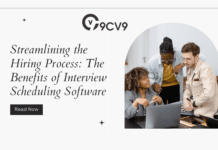Key Takeaways
- Understanding Transferable Skills: Learn how versatile abilities like communication and leadership can propel your career forward, transcending job roles and industries.
- Strategies for Acquisition: Discover actionable steps, from continuous learning to hands-on experience, to acquire and develop transferable skills essential for career success.
- Showcasing in Job Applications: Master the art of highlighting transferable skills in resumes and interviews, demonstrating your value as a candidate and increasing your chances of securing your dream job.
In today’s rapidly evolving professional landscape, the ability to adapt, grow, and thrive is paramount for success.
As industries transform, job roles shift, and technologies advance, the demand for versatile professionals equipped with transferable skills continues to soar.
But what exactly are transferable skills, and how can you obtain them to propel your career forward?
Welcome to our comprehensive guide on understanding transferable skills and unlocking their full potential.
Whether you’re a recent graduate embarking on your professional journey or a seasoned professional looking to enhance your skill set, this blog will provide you with invaluable insights and actionable strategies to harness the power of transferable skills.

Let’s begin by demystifying the concept of transferable skills.
In essence, transferable skills are the versatile abilities and attributes that can be applied across various roles, industries, and contexts.
Unlike technical skills, which are specific to certain tasks or professions, transferable skills transcend job titles and serve as the foundation for long-term career success.
Picture yourself as a skilled craftsman with a toolkit filled not only with specialized tools for particular tasks but also with versatile tools that can be adapted to different projects.
Transferable skills are the versatile tools in your professional toolkit, empowering you to tackle diverse challenges, navigate uncertainties, and seize new opportunities with confidence.
Now, let’s delve deeper into the realm of transferable skills.
They encompass a wide range of competencies, spanning both soft skills and hard skills.
Soft skills, such as communication, leadership, teamwork, and adaptability, are invaluable assets that enable effective collaboration, foster positive relationships, and drive organizational success.
On the other hand, hard skills encompass technical proficiencies, analytical abilities, and domain-specific knowledge that are essential for executing tasks and solving complex problems within specific industries or fields.
While hard skills may vary depending on the nature of your work, transferable hard skills such as critical thinking, problem-solving, and project management are universally sought-after and highly transferable across various domains.
Understanding the significance of transferable skills in today’s job market is crucial for navigating the ever-changing professional landscape.
In an era characterized by rapid technological advancements, economic uncertainty, and shifting job dynamics, individuals with strong transferable skills have a distinct competitive advantage.
Employers increasingly prioritize candidates who possess not only the requisite technical skills but also the ability to communicate effectively, adapt to change, think critically, and collaborate seamlessly across teams and departments.
By cultivating transferable skills, you not only enhance your employability but also future-proof your career against unforeseen challenges and disruptions.
So, how can you acquire and develop transferable skills to enhance your professional repertoire?
Stay tuned as we explore a variety of strategies, techniques, and resources to help you cultivate and showcase your transferable skills effectively.
Whether you’re seeking to enhance your communication skills, sharpen your problem-solving abilities, or cultivate leadership qualities, we’ve got you covered.
From enrolling in relevant courses and certifications to volunteering for hands-on experience, from networking with industry experts to honing your skills through everyday activities, we’ll provide you with practical guidance and actionable steps to unlock your full potential.
Join us on this transformative journey as we empower you to unleash the power of transferable skills and chart a course towards career success and fulfillment.
Together, let’s embark on a quest to acquire the skills, knowledge, and mindset needed to thrive in today’s dynamic and competitive job market.
Before we venture further into this article, we like to share who we are and what we do.
About 9cv9
9cv9 is a business tech startup based in Singapore and Asia, with a strong presence all over the world.
With over eight years of startup and business experience, and being highly involved in connecting with thousands of companies and startups, the 9cv9 team has listed some important learning points in this overview of What are Transferable Skills and How to Obtain Them.
If you are looking for a job or an internship, click over to use the 9cv9 Job Portal to find your next top job and internship now.
What are Transferable Skills and How to Obtain Them
- Understanding Transferable Skills
- Identifying Key Transferable Skills
- Strategies to Acquire Transferable Skills
- Cultivating Transferable Skills in Everyday Life
- Showcasing Transferable Skills in Job Applications and Interviews
1. Understanding Transferable Skills
In the fast-paced world of modern employment, transferable skills stand as the cornerstone of career adaptability and growth.
Let’s delve into a comprehensive understanding of transferable skills, exploring their definition, types, and real-world significance through illustrative examples.
What are Transferable Skills?
- Definition: Transferable skills, also known as portable or soft skills, encompass a diverse set of abilities that are applicable across different roles, industries, and contexts.
- Example: Communication, leadership, adaptability, problem-solving, and time management are prime examples of transferable skills.
- Versatility: Unlike technical skills, which are job-specific, transferable skills transcend job titles and serve as the foundation for career mobility and resilience.
- Example: A project manager proficient in communication and leadership can seamlessly transition into a team leader role in a different industry, leveraging their transferable skills to excel in their new position.

Types of Transferable Skills
- Soft Skills:
- Communication: The ability to convey ideas clearly and effectively through verbal, written, and non-verbal means.
- Example: A marketing professional adept at crafting compelling narratives to engage audiences across various digital platforms.
- Leadership: The capacity to inspire, motivate, and guide individuals or teams towards achieving common goals.
- Example: A team leader who fosters collaboration, delegates tasks efficiently, and empowers team members to unleash their full potential.
- Adaptability: The skill to navigate change, embrace uncertainty, and thrive in dynamic environments.
- Example: An IT specialist who swiftly adapts to emerging technologies, learns new programming languages, and acquires relevant certifications to stay ahead in the ever-evolving tech landscape.
- Communication: The ability to convey ideas clearly and effectively through verbal, written, and non-verbal means.
- Hard Skills:
- Critical Thinking: The ability to analyze information, evaluate situations, and make informed decisions.
- Example: A financial analyst who employs data-driven insights and analytical tools to assess market trends and recommend investment strategies.
- Project Management: The proficiency to plan, execute, and oversee projects from inception to completion.
- Example: An event coordinator who orchestrates seamless events, manages budgets, coordinates vendors, and resolves logistical challenges with ease.
- Technical Proficiency: Domain-specific knowledge and expertise in specialized tools, software, or methodologies.
- Example: A graphic designer proficient in Adobe Creative Suite, capable of creating visually stunning designs for both print and digital media.
- Critical Thinking: The ability to analyze information, evaluate situations, and make informed decisions.
Significance of Transferable Skills
- Employability: Employers prioritize candidates with strong transferable skills, recognizing their potential to contribute effectively to organizational success.
- Example: A hiring manager seeks a customer service representative who possesses excellent communication skills to interact with clients, resolve inquiries, and maintain positive relationships.
- Career Mobility: Transferable skills empower individuals to pivot between roles, industries, or career paths with ease, opening doors to diverse opportunities for growth and advancement.
- Example: A sales associate with exceptional negotiation skills transitions into a business development role, leveraging their ability to build rapport, identify client needs, and close deals.
- Resilience: In the face of economic uncertainties, technological disruptions, or industry shifts, transferable skills serve as a shield against obsolescence, enabling individuals to adapt, innovate, and thrive amidst change.
- Example: A marketing manager embraces digital transformation, upskills in social media marketing, and leads successful campaigns to drive brand visibility and engagement in the online space.
Understanding the nuances of transferable skills equips individuals with the insight and awareness to harness their potential, transcend limitations, and embark on a journey of continuous growth and professional excellence.
2. Identifying Key Transferable Skills
Identifying and acknowledging your transferable skills is the first step towards unlocking your full potential and advancing your career.
In this section, we’ll explore various strategies to recognize and highlight your key transferable skills, accompanied by relevant examples to illustrate their real-world applications.
Conducting a Self-Assessment
- Reflect on Past Experiences: Review your professional journey, educational background, and personal accomplishments to identify recurring patterns of skills and strengths.
- Example: A retail associate may recognize their proficiency in customer service, problem-solving, and salesmanship through years of interaction with diverse clientele.
- Utilize Self-Assessment Tools: Leverage online assessments, personality tests, and skill inventories to gain insights into your strengths, preferences, and areas for development.
- Example: Completing a DISC assessment reveals an individual’s dominant traits, such as assertiveness, sociability, and attention to detail, which can inform their understanding of transferable skills.
- Seek Feedback: Solicit feedback from mentors, colleagues, and supervisors to gain external perspectives on your abilities, strengths, and areas for improvement.
- Example: A software developer receives positive feedback from their team members regarding their leadership during a project, indicating strong interpersonal and collaborative skills.
Researching Industry-Specific Demands
- Explore Job Descriptions: Analyze job postings and industry trends to identify common requirements, skills, and qualifications sought by employers.
- Example: A marketing professional notes that digital marketing skills, such as SEO, social media management, and content creation, are in high demand across various industries.
- Stay Updated: Keep abreast of emerging technologies, market demands, and industry standards to align your skill set with evolving needs and opportunities.
- Example: A data analyst follows industry publications and attends webinars to stay informed about advancements in data visualization tools and techniques, enhancing their analytical capabilities.
- Networking: Engage with professionals in your industry through networking events, conferences, and online communities to gain insights into prevalent skills and competencies.
- Example: A budding entrepreneur connects with established business owners to understand the key skills and attributes required to succeed in the competitive startup ecosystem.
Seeking Feedback from Mentors and Peers
- Engage in Mentorship: Seek guidance and mentorship from seasoned professionals who can offer valuable advice, share their experiences, and provide constructive feedback.
- Example: A recent graduate receives mentorship from an industry veteran who helps them identify their strengths in project management, problem-solving, and strategic thinking.
- Peer Evaluation: Collaborate with peers on projects or initiatives and solicit feedback on your contributions, communication style, and teamwork.
- Example: A team member receives praise from colleagues for their ability to mediate conflicts, foster collaboration, and maintain a positive team dynamic during a challenging project.
- Performance Reviews: Utilize performance evaluations and appraisals as opportunities to assess your strengths, areas for improvement, and progress towards developing transferable skills.
- Example: A sales manager receives constructive feedback from their supervisor highlighting their exceptional negotiation skills, leadership potential, and ability to mentor junior team members.
By actively engaging in self-assessment, researching industry demands, and seeking feedback from mentors and peers, individuals can gain clarity on their transferable skills, leverage their strengths, and position themselves for success in their chosen career paths.
3. Strategies to Acquire Transferable Skills
Acquiring transferable skills is a dynamic process that involves continuous learning, practical application, and intentional development.
In this section, we’ll explore a variety of strategies and techniques to help you cultivate and enhance your transferable skills, along with relevant examples to illustrate their effectiveness in real-world scenarios.
Continuous Learning and Professional Development
- Pursue Relevant Courses and Certifications: Enroll in courses, workshops, or online programs that offer opportunities to acquire new skills or deepen existing knowledge.
- Example: A marketing professional attends a digital marketing certification program to gain expertise in SEO, content marketing, and email automation.
- Utilize Online Learning Platforms: Explore platforms like Coursera, LinkedIn Learning, or Udemy to access a wide range of courses, tutorials, and resources on topics relevant to your career goals.
- Example: A software developer completes a Python programming course on Udemy to enhance their coding skills and stay updated on the latest industry trends.
- Attend Workshops and Seminars: Participate in industry-specific workshops, conferences, or seminars to learn from experts, network with peers, and gain practical insights into emerging trends and best practices.
- Example: A project manager attends a leadership seminar where they learn strategies for effective team management, conflict resolution, and decision-making.
Volunteering and Internships
- Gain Hands-On Experience: Volunteer for projects, internships, or community initiatives that offer opportunities to apply and refine your transferable skills in real-world settings.
- Example: A recent graduate volunteers with a local nonprofit organization to organize fundraising events, honing their event planning, communication, and leadership skills.
- Internship Opportunities: Seek internships or co-op placements in your field of interest to gain valuable experience, expand your professional network, and enhance your skill set under the guidance of experienced mentors.
- Example: An aspiring graphic designer secures an internship at a design agency where they assist senior designers, collaborate on client projects, and develop their creative abilities.
- Freelance Work: Explore freelance or contract opportunities to work on independent projects, collaborate with clients, and build a portfolio showcasing your skills and expertise.
- Example: A freelance writer takes on assignments from various clients, writing articles, blog posts, and marketing content to develop their writing style, research skills, and time management abilities.
Networking and Mentorship
- Build Professional Relationships: Network with professionals in your industry through networking events, online forums, and professional associations to exchange ideas, seek advice, and explore collaborative opportunities.
- Example: An aspiring entrepreneur attends industry conferences and connects with successful business owners to gain insights into entrepreneurship, marketing strategies, and business development.
- Seek Mentorship: Identify mentors or advisors who can offer guidance, share their experiences, and provide valuable feedback to support your professional growth and development.
- Example: A software engineer seeks mentorship from a senior developer who provides guidance on coding best practices, project management techniques, and career advancement strategies.
- Join Professional Groups: Become a member of professional organizations, online communities, or alumni groups where you can engage in discussions, access resources, and collaborate with like-minded professionals.
- Example: A healthcare professional joins a professional association for nurses, participating in forums, attending webinars, and accessing research articles to stay updated on industry trends and best practices.
Side Projects and Freelance Opportunities
- Initiate Side Projects: Undertake personal or side projects that allow you to explore new skills, experiment with different approaches, and showcase your creativity and problem-solving abilities.
- Example: A web developer creates a personal website to showcase their portfolio, experiment with new technologies, and demonstrate their expertise to potential clients or employers.
- Freelance Opportunities: Explore freelance gigs or consulting projects in your area of expertise to gain diverse experience, expand your professional network, and generate additional income.
- Example: A marketing consultant takes on freelance projects to develop marketing strategies, conduct market research, and execute campaigns for small businesses, gaining valuable experience and client referrals.
- Collaborative Initiatives: Collaborate with peers or professionals from complementary fields on joint projects, initiatives, or ventures that allow you to leverage each other’s strengths and skills.
- Example: A group of designers, developers, and marketers collaborate on a startup project, pooling their expertise to create a new product, launch a crowdfunding campaign, and build a brand presence in the market.
By adopting these strategies and actively engaging in learning, practical experience, networking, and collaborative initiatives, individuals can acquire and develop transferable skills that are essential for success in today’s dynamic and competitive job market.
4. Cultivating Transferable Skills in Everyday Life
Cultivating transferable skills doesn’t solely happen within the confines of formal education or professional settings.
Everyday life presents numerous opportunities to develop and hone these essential abilities. Let’s explore practical strategies and examples to cultivate transferable skills in various aspects of everyday life.
Enhancing Communication Skills
- Practice Active Listening: Focus on truly understanding others’ perspectives and feelings during conversations, rather than simply waiting for your turn to speak.
- Example: Actively listen to a friend sharing their experiences or concerns without interrupting, offering empathetic responses and asking clarifying questions.
- Engage in Meaningful Conversations: Initiate discussions on diverse topics with friends, family, or colleagues to broaden your understanding and improve your ability to articulate ideas effectively.
- Example: Engage in a debate about current events with peers, expressing your opinions while respectfully considering opposing viewpoints.
- Write Regularly: Keep a journal, start a blog, or participate in online forums to practice expressing your thoughts and ideas in writing.
- Example: Maintain a personal blog where you write about your experiences, insights, and reflections on various topics of interest.

Developing Leadership Qualities
- Take Initiative: Volunteer to lead group projects, organize events, or spearhead initiatives within your community or social circles.
- Example: Take charge of planning a fundraising event for a local charity, coordinating volunteers, managing logistics, and delegating tasks effectively.
- Delegate Tasks: Learn to trust others and distribute responsibilities among team members based on their strengths and expertise.
- Example: Delegate specific tasks to classmates or colleagues when working on group assignments or projects, ensuring each member contributes effectively to the overall goal.
- Provide Constructive Feedback: Offer feedback to peers or team members in a constructive and supportive manner to help them improve and grow.
- Example: Provide feedback to a coworker on their presentation skills, highlighting their strengths and offering suggestions for areas of improvement in a respectful manner.
Building Resilience and Adaptability
- Embrace Challenges: View setbacks and obstacles as opportunities for growth and learning rather than insurmountable barriers.
- Example: Approach a difficult task or project with a positive mindset, focusing on finding solutions and learning from mistakes rather than dwelling on failures.
- Seek Feedback and Learn from Mistakes: Solicit feedback from others and reflect on your experiences to identify areas for improvement and growth.
- Example: Request feedback from a supervisor or mentor after completing a challenging project, reflecting on both successes and areas for development.
- Practice Mindfulness and Stress Management: Develop strategies to cope with stress, maintain a positive outlook, and stay focused during challenging times.
- Example: Incorporate mindfulness techniques such as meditation or deep breathing exercises into your daily routine to reduce stress and enhance resilience.
Sharpening Analytical and Problem-Solving Abilities
- Seek Opportunities for Problem-Solving: Look for challenges or puzzles to solve in your daily life, whether it’s troubleshooting technical issues, solving riddles, or tackling brain teasers.
- Example: Solve a complex Sudoku puzzle or crossword puzzle, applying logical reasoning and strategic thinking to identify patterns and solutions.
- Develop Critical Thinking Skills: Question assumptions, evaluate information critically, and consider alternative perspectives when faced with complex issues or decisions.
- Example: Analyze news articles or opinion pieces critically, considering the credibility of sources, potential biases, and underlying assumptions.
- Engage in Creative Activities: Participate in creative endeavors such as painting, writing, or music that require innovative thinking and problem-solving skills.
- Example: Experiment with different painting techniques or write a short story, challenging yourself to think outside the box and explore new ideas.
By integrating these strategies into your everyday life, you can actively cultivate transferable skills that are essential for success in both personal and professional contexts.
Whether it’s improving communication skills through meaningful conversations, developing leadership qualities through volunteer initiatives, building resilience through mindfulness practices, or sharpening analytical abilities through problem-solving activities, there are countless opportunities to enhance your skills and unlock your full potential.
5. Showcasing Transferable Skills in Job Applications and Interviews
Effectively showcasing transferable skills in job applications and interviews is crucial for standing out to potential employers and demonstrating your value as a candidate.
In this section, we’ll explore practical strategies and examples to highlight your transferable skills and make a compelling case for your candidacy.
Tailoring Resumes and Cover Letters
- Highlight Relevant Experiences: Customize your resume and cover letter to emphasize transferable skills that are directly relevant to the job requirements.
- Example: For a customer service position, emphasize your strong communication skills, problem-solving abilities, and customer-focused approach in your resume and cover letter.
- Use Action Verbs: Start bullet points with action verbs to convey your accomplishments and contributions effectively.
- Example: “Led a cross-functional team to implement a new customer relationship management system, resulting in a 20% increase in customer satisfaction.”
- Quantify Achievements: Use metrics, numbers, or percentages to quantify the impact of your actions and demonstrate tangible results.
- Example: “Increased sales revenue by 30% through the implementation of targeted marketing campaigns and customer retention strategies.”
Crafting Compelling Stories
- Use the STAR Method: Structure your responses to behavioral interview questions using the Situation, Task, Action, Result (STAR) method to provide concrete examples of your transferable skills in action.
- Example: When asked about a time you demonstrated leadership skills, describe a specific situation, the tasks you were assigned, the actions you took, and the positive results achieved.
- Tell Success Stories: Share success stories or anecdotes that showcase your transferable skills and highlight your ability to overcome challenges and achieve goals.
- Example: Describe a time when you effectively resolved a customer complaint, demonstrating your communication skills, empathy, and problem-solving abilities.
- Connect Experiences to Job Requirements: Draw connections between your past experiences and the skills required for the job, demonstrating how your transferable skills make you a strong fit for the role.
- Example: If the job requires strong organizational skills, discuss your experience managing multiple projects simultaneously and prioritizing tasks effectively.
Navigating Behavioral Interview Questions
- Prepare Examples in Advance: Anticipate common behavioral interview questions and prepare examples that illustrate your transferable skills and relevant experiences.
- Example: Practice responding to questions about teamwork, leadership, problem-solving, and conflict resolution using specific examples from your past experiences.
- Focus on Specific Situations: Provide detailed and specific examples that demonstrate the context, actions taken, and outcomes achieved in your responses.
- Example: Instead of giving a general answer, describe a particular project or situation where you applied your transferable skills to overcome a challenge or achieve a goal.
- Show Growth and Learning: Highlight instances where you have actively sought opportunities to develop and improve your transferable skills, demonstrating a commitment to continuous learning and professional growth.
- Example: Discuss a time when you identified a skill gap and took proactive steps to acquire new knowledge or experience, such as attending workshops or pursuing additional training.
Conclusion and Follow-Up
- Reiterate Your Value Proposition: Summarize your key transferable skills and how they align with the requirements of the job in your closing statements during the interview.
- Example: Express your enthusiasm for the opportunity to contribute to the company and reiterate your confidence in your ability to excel in the role based on your demonstrated transferable skills.
- Ask Thoughtful Questions: Use the interview as an opportunity to ask thoughtful questions about the company culture, team dynamics, or future growth opportunities, demonstrating your interest and engagement.
- Example: Inquire about the company’s approach to employee development and training programs, highlighting your commitment to continuous improvement and skill development.
- Follow-Up with Thank-You Note: Send a personalized thank-you email to the interviewer(s) expressing your appreciation for the opportunity to interview and reiterating your interest in the position.
- Example: Thank the interviewer for their time and consideration, and briefly reinforce your qualifications and enthusiasm for the role based on your transferable skills.
By effectively showcasing your transferable skills in job applications and interviews, you can differentiate yourself from other candidates, demonstrate your readiness to succeed in the role, and increase your chances of securing the job opportunity.
Remember to tailor your responses to highlight relevant experiences, use specific examples to illustrate your skills, and demonstrate your enthusiasm and commitment to the position.
Conclusion
In the dynamic landscape of modern careers, the importance of transferable skills cannot be overstated.
Throughout this comprehensive guide, we’ve delved deep into the realm of transferable skills, exploring their definition, types, acquisition strategies, and practical applications in various aspects of life and work.
As we conclude our exploration, let’s reflect on the significance of transferable skills and the transformative potential they hold for individuals seeking to advance their careers and achieve professional excellence.
Empowering Career Advancement
Transferable skills serve as the cornerstone of career advancement, enabling individuals to navigate diverse challenges, seize opportunities, and thrive in an ever-changing job market.
Whether it’s communication, leadership, adaptability, or problem-solving, these versatile abilities empower individuals to transcend job titles, industries, and roles, positioning them for long-term success and fulfillment.
Lifelong Learning and Growth
The journey to acquiring and honing transferable skills is one of continuous learning, growth, and self-discovery.
Through a combination of formal education, practical experience, and intentional development efforts, individuals can expand their skill set, broaden their horizons, and unlock new opportunities for personal and professional growth.
Resilience in the Face of Change
In an era characterized by rapid technological advancements, economic uncertainties, and shifting job dynamics, transferable skills serve as a shield against obsolescence and a catalyst for resilience.
Individuals equipped with strong transferable skills are better prepared to adapt to change, overcome challenges, and thrive amidst uncertainty, positioning themselves as invaluable assets to employers and organizations.
Building a Future of Possibilities
As we look to the future, the cultivation of transferable skills will continue to play a pivotal role in shaping the careers of tomorrow.
By embracing lifelong learning, fostering resilience, and harnessing the power of transferable skills, individuals can unlock their full potential, pursue their passions, and chart a course towards a future filled with endless possibilities.
In conclusion, transferable skills represent not just a set of abilities, but a pathway to success, fulfillment, and professional excellence.
By understanding their significance, adopting strategies for acquisition, and showcasing them effectively in job applications and interviews, individuals can position themselves as standout candidates in today’s competitive job market and embark on a journey of continuous growth, learning, and achievement.
As you embark on your own journey to master transferable skills, remember that the possibilities are limitless, and the rewards are boundless. Embrace the challenge, seize the opportunity, and let your transferable skills propel you towards a future filled with endless possibilities and boundless opportunities for success.
If you find this article useful, why not share it with your friends and also leave a nice comment below?
We, at the 9cv9 Research Team, strive to bring the latest and most meaningful data, guides, and statistics to your doorstep.
To get access to top-quality guides, click over to 9cv9 Blog.
If you are keen to find a job or internship, then click on 9cv9 Job Portal now.
People Also Ask
What do transferable skills mean?
Transferable skills are versatile abilities and attributes that can be applied across various roles, industries, and contexts. They include both soft skills like communication and leadership, and hard skills like technical proficiency and problem-solving, essential for success in diverse professional settings.
What transferable skills can I bring to a job?
You can bring transferable skills such as communication, leadership, adaptability, problem-solving, time management, teamwork, and critical thinking to any job. These skills are valuable assets that enable you to excel in various roles and contribute effectively to organizational success.
How do I identify my transferable skills?
Identify your transferable skills by reflecting on past experiences, seeking feedback from mentors and peers, researching industry demands, and analyzing job descriptions. Look for common themes and strengths in areas like communication, leadership, problem-solving, and adaptability.































![Writing A Good CV [6 Tips To Improve Your CV] 6 Tips To Improve Your CV](https://blog.9cv9.com/wp-content/uploads/2020/06/2020-06-02-2-100x70.png)


